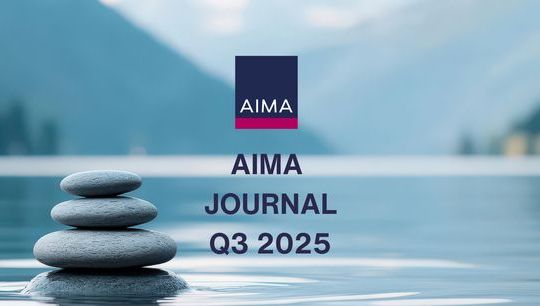2023 Review: AIMA Tax Engagement
Published: 18 December 2023
2023 Review: AIMA Tax Engagement
2023 brought further political uncertainty on taxation at the international level with question marks surrounding the future implementation of the OECD two-pillar approach. We also saw several proposals announced and then cancelled at the EU level, all amongst a broader political debate about contributions from private business to shore up public finances amid increasing challenges. On the other hand, we had the release in the summer of 2023 of the EU proposal on a common EU withholding tax procedure, something that AIMA has been championing for several years.
2023 also marked the last full year of the current European Commission term. AIMA therefore does not expect to see any new proposals until the new European Commission takes office in H2 2024.
A summary of the key global tax themes we engaged on can be found here.
BEPS 2.0
Our focus at international level on the implementation of the two Pillar solution has been aimed at monitoring developments and speculating whether we will indeed see global implementation of the new framework. While Pillar Two has been implemented in the EU via a Directive on minimum taxation, significant uncertainty exists regarding finalisation of Pillar One, and whether the US will agree to its implementation.
Taken together, the two Pillar solution would refocus existing rules on taxing MNE profits and avoid the various forms of digital services tax (DST) which have been introduced or threatened globally. There are exemptions for regulated financial services businesses and for investment funds, but these may not be straightforward to claim, particularly for funds with complex asset holding structures or which are majority owned by insurance business MNEs. The end of 2023 does not bring us any closure on the long-running saga of international taxation, and we will need to wait and see whether progress is made in 2024.
EU:
- Unshell Directive:
In November 2023, AIMA submitted a letter to the European Commission and Member States to urge them to retain the exemption for regulated financial entities, including any associated legal entities owned by an investment fund (such as holding companies) from any final approach under the ‘Unshell Directive’, consistent with the approach put forward in the ‘Pillar Two Directive’. Otherwise, we fear a significant administrative burden placed on fund managers which is not the intention of the proposal.
- Withholding Tax:
In November 2023, AIMA sent written comments to the European Commission and Member States expressing support for the approach being pursued but calling for the scope of the proposal to be expanded to include all payments which are subject to withholding tax, and an extension of the electronic residence certificate to non-EU investors. Agreement on the proposal is expected in H1 2024 and we will continue speaking to contacts in the Member States in the meantime.
- EU List of Non-cooperative Jurisdictions for Tax Purposes
No leading fund domiciles are currently included on the EU’s List of Non-cooperative Jurisdictions for Tax Purposes, but the list – and a separate AML list from which the Cayman Islands has now been removed - remain significant for the EU which identifies inclusion as a trigger for defensive measures in many contexts, including marketing by third country funds in the EU under AIFMD. In October 2023, the EU agreed to remove the British Virgin Islands from the EU list of non-cooperative jurisdictions and it is now placed on the Annex 2 list. Hong Kong has committed to reform its foreign source income exemption regime by 31 December 2023 which it is expected to achieve. The expectation is that Hong Kong will be removed from the Annex II list and given a clean bill of health in 2024.
UK
The business tax environment in the UK is increasingly perceived as less favourable towards asset management than it should be. We seek to work with government and opposition teams to address the policy, regulatory and tax barriers which become apparent.
We have responded formally and informally to consultations, in particular concerning proposed changes to the UK’s policy on “independent agent” rules which could limit the reliance of investment managers on treaty provisions.
The investment management exemption has been extended to transactions in digital assets, as we had supported. We await government responses on other elements of the UK Funds Review.
APAC
We have argued for measures to benefit asset management in Hong Kong, Singapore, and Japan. In Hong Kong, we would like to achieve reform of the carried interest tax concession which has met limited success due to its flawed design, and the longstanding obstacles to the management of credit funds. Singapore is reviewing the operation of its fund tax regimes which we believe can be improved.
Looking Ahead
The ongoing consequences of Brexit on the cross-border regulatory landscape with the UK will continue to provide new complexities, all of which provide ample opportunities for AIMA to add value for members.
The AIMA GRA team produces a monthly letter offering the latest analysis of the key industry global regulatory developments as well as a review of some of the global legislative and regulatory actions that impact the alternative asset industry.








